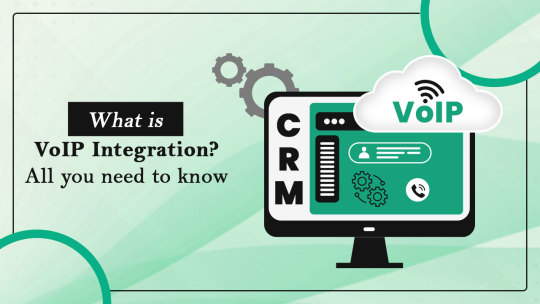#VoIP integration
Explore tagged Tumblr posts
Text
What Features Are Offered by Leading SIP Trunk Providers?

When it comes to business communication, having a reliable and efficient system in place is crucial. That's where SIP trunk providers come in. They offer a range of features that can enhance your communication infrastructure and take it to the next level. From VoIP integration and call routing to PSTN connectivity, leading SIP trunk providers have it all.
Imagine seamlessly integrating your VoIP system with your existing infrastructure. With SIP trunking, this becomes a reality. Leading providers offer robust VoIP integration capabilities, allowing you to streamline your communication channels and improve overall business efficiency. Whether you need unified communications or advanced call features, SIP trunk providers have the tools to make it happen.
PSTN connectivity plays a vital role in ensuring reliable communication between SIP trunks and traditional phone systems. With leading SIP trunk providers, you can count on robust PSTN connectivity that enables crystal-clear voice quality and uninterrupted communication. Their SIP gateways act as a bridge between the digital and analog worlds, ensuring seamless connectivity and eliminating any potential disruptions.
Efficient call routing is another feature offered by leading SIP trunk providers. They leverage advanced technologies to optimize call routing, saving you costs and improving the overall call experience. Intelligent call routing directs calls to the most appropriate endpoints, ensuring that they reach the right destination quickly and efficiently.
But it doesn't stop there. Leading SIP trunk providers also offer wholesale voice solutions for enterprise needs. Whether you require scalable and flexible communication options or comprehensive disaster recovery solutions, these providers have you covered. They understand the unique requirements of businesses and provide tailored solutions to meet those needs.
When selecting a SIP trunk provider, factors such as quality of service, security features, and service level agreements should also be considered. Leading providers prioritize these aspects, ensuring that you receive a reliable, secure, and high-quality communication experience.

In this article, we will delve deeper into the features offered by leading SIP trunk providers, explore real-world case studies, and provide you with a comprehensive guide on selecting the right provider for your business. Stay tuned to discover how partnering with a leading SIP trunk provider can revolutionize your business communication.
Understanding SIP Trunking Services
SIP trunking services, offered by reputable SIP Trunk Providers, have become a vital component of modern communication systems. Using the session initiation protocol (SIP), businesses can connect their private branch exchange (PBX) systems to the public switched telephone network (PSTN) through an internet connection.
With SIP trunking, traditional phone lines are replaced with virtual connections, allowing businesses to make and receive calls over the internet. This eliminates the need for separate physical phone lines and enables cost-effective and efficient communication.
One of the key benefits of SIP trunking is its flexibility. Unlike traditional phone systems, which have a fixed number of lines, SIP trunks can be easily scaled up or down to accommodate the changing needs of businesses. This scalability allows for better resource allocation and cost savings.
SIP trunking also offers improved call quality and reliability. By leveraging the internet for voice transmission, businesses can enjoy high-definition audio and clearer conversations. Moreover, SIP trunk providers often include robust redundancy and disaster recovery solutions, ensuring uninterrupted communication even during unforeseen events.
Another advantage of SIP trunking is its ability to enable PSTN connectivity. Businesses can connect their SIP trunks to traditional phone systems, allowing them to make and receive calls using existing hardware. This integration helps organizations leverage their existing infrastructure while enjoying the benefits of SIP trunking.
Overall, by adopting SIP trunking services from reputable providers, businesses can streamline their communication systems, reduce costs, and enhance their overall productivity. The next section will explore the integration of VoIP systems with SIP trunking, highlighting the benefits of this unified approach.
VoIP Integration for Enhanced Communication
SIP trunk providers play a crucial role in enabling seamless integration with VoIP systems, enhancing communication capabilities for businesses. By embracing VoIP integration, companies can leverage the power of unified communications to streamline their operations and improve overall efficiency.
Unified communications refers to the integration of various communication tools and platforms into a centralized system. This allows employees to access a wide range of communication channels, such as voice calls, video conferencing, instant messaging, and email, all from a single interface. With VoIP integration facilitated by SIP trunk providers, companies can achieve a higher level of collaboration and productivity.
Through the integration of VoIP systems, businesses can experience several benefits. Firstly, VoIP enables cost-effective communication by utilizing the internet for voice calls rather than traditional phone lines. This eliminates the need for separate phone systems, resulting in significant cost savings for businesses.
youtube
Additionally, VoIP integration allows for greater flexibility and scalability. SIP trunk providers offer businesses the ability to add or remove VoIP channels as needed, accommodating fluctuations in communication requirements. This scalability ensures that businesses can easily adapt to changing needs without incurring unnecessary costs.
Benefits of VoIP Integration:
Cost-effective communication through the use of internet telephony
Improved collaboration and productivity with unified communications
Flexibility and scalability to meet changing communication needs
Enhanced mobility and remote accessibility
Seamless integration with existing communication systems
In summary, VoIP integration facilitated by SIP trunk providers empowers businesses with efficient and unified communication solutions. By leveraging the benefits of VoIP systems, companies can optimize their communication workflows, enhance collaboration, and achieve a competitive edge in today's digital landscape.

Robust PSTN Connectivity for Reliable Communication
When it comes to business communication, reliability is key. That's why having robust PSTN connectivity is crucial for businesses seeking uninterrupted and dependable phone system connectivity. SIP trunk providers play a vital role in ensuring this robust connectivity through the use of SIP gateways.
SIP gateways act as the bridge between SIP trunks and traditional phone systems, allowing for seamless communication between the two. They enable businesses to connect their IP-based phone systems to the Public Switched Telephone Network (PSTN), ensuring that calls can be made and received without any disruptions.
With SIP gateways, businesses can leverage their existing phone systems while taking advantage of the cost savings and additional features provided by SIP trunking services. Whether it's making local or international calls, SIP gateways ensure that the communication is reliable and of high quality.
By partnering with a leading SIP trunk provider that offers robust PSTN connectivity, businesses can enjoy the benefits of a dependable and efficient phone system. They can confidently communicate with clients, customers, and partners, knowing that their calls will go through smoothly and without any hiccups.
Benefits of robust PSTN connectivity provided by SIP trunk providers:
Reliable and uninterrupted communication
Seamless integration between SIP trunks and traditional phone systems
Cost savings by leveraging existing phone systems
High-quality voice calls, both local and international
With robust PSTN connectivity provided by SIP trunk providers, businesses can achieve reliable and consistent communication, allowing them to focus on their core operations and serve their customers effectively.
Efficient Call Routing for Cost Savings
When it comes to business communication, efficient call routing plays a crucial role in ensuring seamless connectivity and optimizing costs. Leading SIP trunk providers offer robust call routing capabilities that enable businesses to streamline their communication processes and drive cost savings.
Call routing involves the intelligent distribution of incoming calls to the most appropriate destination within an organization. With SIP trunking, businesses can leverage advanced call routing features to enhance their overall communication efficiency. These features include:
Automatic call forwarding: Incoming calls can be automatically redirected to different extensions or departments based on pre-defined rules. This ensures that calls are efficiently routed to the most suitable individuals or teams, minimizing the need for manual intervention.
Time-based routing: Businesses can set up call routing rules based on specific time frames. For example, calls received outside of office hours can be redirected to voicemail or a designated on-call team, ensuring that no important calls go unanswered.
Geographical routing: SIP trunk providers also offer geographical call routing functionality. Calls can be directed to different locations or branches based on the caller's geographical location. This ensures that customers are connected to the most relevant and geographically suitable agents or representatives.
By implementing efficient call routing strategies, businesses can achieve significant cost savings. With intelligent call routing, organizations can reduce unnecessary call transfers and minimize the time spent on handling each call. This optimized call flow helps enhance productivity and customer satisfaction while reducing operational costs.
Moreover, leading SIP trunk providers offer flexible pricing models for their call routing services, allowing businesses to pay for the specific call routing features they require. This ensures cost-efficient communication solutions tailored to their unique needs and enables them to avoid unnecessary expenses.
With the right call routing capabilities provided by leading SIP trunk providers, businesses can maximize their communication efficiency, reduce costs, and deliver exceptional customer experiences.

Wholesale Voice Solutions for Enterprise Needs
SIP trunk providers offer wholesale voice solutions tailored to meet the specific communication needs of enterprises. These solutions enable businesses to streamline their voice services while enjoying cost savings and improved efficiency. Let's explore how wholesale voice, wholesale VoIP, and wholesale voice termination can benefit your enterprise.
Benefits of Wholesale Voice Solutions
Cost Savings: Wholesale voice solutions allow enterprises to purchase voice services in bulk at discounted rates, resulting in significant cost savings compared to traditional voice services.
Scalability: These solutions are highly scalable, allowing businesses to easily add or remove channels based on their changing communication needs.
Reliable Performance: Leading SIP trunk providers ensure high-quality voice termination services, providing crystal-clear voice communication for seamless business operations.
Flexibility: Wholesale voice solutions offer businesses the flexibility to choose the most suitable voice termination options, such as local, international, or toll-free numbers.
Centralized Management: Enterprises can manage their voice services centrally, reducing administrative complexities and enhancing overall control of their communication systems.
Wholesale VoIP and Voice Termination
Wholesale VoIP allows businesses to transmit voice calls over the internet. By partnering with a reputable SIP trunk provider, enterprises can benefit from wholesale VoIP services that offer extensive coverage, competitive pricing, and exceptional call quality. Wholesale voice termination refers to the process of routing voice calls to their intended destinations across various networks. SIP trunk providers ensure seamless voice termination, ensuring that businesses can connect with their customers and partners without any disruptions.
Scalability and Flexibility of SIP Trunking
When it comes to business communication, adaptability is key. That's why SIP trunking services from leading providers offer unmatched scalability and flexibility, allowing businesses to easily adjust their communication infrastructure as their needs evolve.
With SIP trunking, businesses can add or remove SIP channels effortlessly, enabling them to optimize their resources and costs. Whether you need to accommodate a sudden increase in call volume or scale down during slower periods, SIP trunking allows for seamless adjustments without disrupting your operations.
By partnering with reliable SIP trunk providers, businesses gain access to the internet telephony solutions they need to connect with customers, clients, and partners across the globe. Leveraging the power of SIP channels, organizations can establish high-quality voice calls and exchange data efficiently, regardless of geographical boundaries.
What's more, SIP trunking services enable businesses to integrate modern communication technologies seamlessly. By leveraging internet telephony, companies can enjoy the benefits of unified communications, combining voice, messaging, and other collaboration tools into a single, cohesive platform.
By harnessing the scalability and flexibility offered by SIP trunking, businesses can future-proof their communication systems, ensuring they can adapt to evolving customer demands and industry trends. Whether it's expanding to new markets, supporting remote workforces, or implementing advanced communication features, SIP trunking provides the foundation for growth and innovation.

In the next section, we will explore the robust redundancy and disaster recovery solutions offered by leading SIP trunk providers, ensuring uninterrupted communication even during unforeseen events.
Redundancy and Disaster Recovery Solutions
Leading SIP Trunk Providers understand the critical need for uninterrupted communication in today's business landscape. That is why they offer robust redundancy and disaster recovery solutions to ensure seamless operations even during unforeseen events.
Disasters such as natural calamities or system failures can significantly disrupt communication channels, leading to loss of productivity and potential revenue. However, businesses can mitigate these risks by partnering with SIP Trunk Providers that prioritize disaster recovery solutions.
Redundancy for Reliable Communication
SIP Trunk Providers leverage redundant infrastructure to maintain service availability and minimize downtime. By deploying multiple data centers located in geographically diverse regions, these providers ensure that even if one location goes offline, communication remains uninterrupted. This redundancy eliminates single points of failure, resulting in highly reliable and resilient SIP trunking services.
Furthermore, leading providers employ advanced failover mechanisms to seamlessly switch traffic to an alternate data center in case of any disruption. This automated process helps maintain continuity and enables businesses to overcome challenges without any significant impact on their communication systems.
Disaster Recovery Solutions for Business Continuity
In addition to redundancy, SIP Trunk Providers offer comprehensive disaster recovery solutions to safeguard businesses during emergencies. These solutions include backup strategies, data replication, and failover procedures to ensure that critical communication services are quickly restored in the event of a disaster.
By implementing disaster recovery plans and backup systems, SIP Trunk Providers can swiftly recover data, reroute calls, and restore services, minimizing any potential loss of communication and allowing businesses to resume operations promptly.
Benefits of Redundancy and Disaster Recovery Solutions
Ensures uninterrupted communication, enhancing business continuity
Minimizes potential revenue loss during downtime
Provides peace of mind knowing that communication channels are protected
Facilitates quick restoration of services, reducing downtime impact
Improves overall reliability and resilience of communication systems
By partnering with a SIP Trunk Provider that prioritizes redundancy and disaster recovery solutions, businesses can effectively safeguard their communication infrastructure, enabling them to stay connected even in the face of adversity.
Quality of Service and Service Level Agreements
When it comes to SIP trunking services, the quality of service (QoS) offered by SIP trunk providers is paramount. Whether you are a small business or a large enterprise, ensuring reliable and high-quality communication is essential for seamless operations.
Quality of service refers to the performance and reliability of the voice and data transmission over SIP trunks. It encompasses factors such as call clarity, minimal latency, and consistent bandwidth allocation. Achieving a high level of quality requires the expertise and infrastructure provided by reputable SIP trunk providers.
SIP trunk providers understand the significance of QoS and strive to deliver exceptional performance. They maintain robust networks and employ advanced technologies to ensure crystal-clear voice calls and smooth data transmissions. By prioritizing QoS, businesses can avoid issues like dropped calls, poor audio quality, and data loss.
In addition to QoS, service level agreements (SLAs) play a crucial role in guaranteeing reliable communication. SLAs are contracts between businesses and SIP trunk providers that outline the expected level of service. They define metrics such as uptime percentage, call completion rates, and response times for support inquiries.
With SLAs in place, businesses can have peace of mind knowing that their communication system is backed by guarantees. In the event of any service disruptions, providers are bound to resolve issues promptly, minimizing downtime and ensuring uninterrupted operations.
SIP Trunk Providers: Ensuring High-Quality Communication
Advanced network infrastructure: Leading SIP trunk providers invest in state-of-the-art network infrastructure to deliver superior quality of service. They prioritize traffic to minimize latency, jitter, and packet loss.
Bandwidth management: Providers allocate and manage bandwidth effectively to ensure consistent performance even during peak usage periods. This allows businesses to maintain optimal communication quality without bottlenecks.
Quality monitoring and optimization: SIP trunk providers continuously monitor and optimize their services to identify and address potential quality issues. They employ proactive measures to maintain the highest standards of communication quality.
Redundancy and failover systems: To ensure reliable communication, providers have redundant systems in place. In the event of any network or hardware failures, failover systems seamlessly switch to backup routes, minimizing service disruptions.
By partnering with a reputable SIP trunk provider, businesses can leverage their expertise and infrastructure to achieve exceptional quality of service. This translates into clearer calls, smoother data transfers, and enhanced overall communication experiences.
Next, we'll explore the security and encryption features offered by leading SIP trunk providers to ensure the privacy and protection of your communication. But first, let's take a moment to visualize the importance of quality of service in SIP trunking services.

Security and Encryption Features
When it comes to business communication, security is paramount. Leading SIP Trunk Providers understand this and offer robust security measures and encryption features to ensure the confidentiality and integrity of your communications.
One of the key security features offered by SIP Trunk Providers is Transport Layer Security (TLS). TLS encrypts the communication between your organization and the service provider, preventing unauthorized access and eavesdropping. It provides end-to-end encryption, keeping your data secure from the moment it leaves your network until it reaches its destination.
In addition to TLS, providers often employ Secure Real-time Transport Protocol (SRTP) for securing voice and video calls. SRTP encrypts the media streams, making sure that your conversations cannot be intercepted or tampered with. This adds an extra layer of protection to your sensitive business communications.
SIP Trunk Providers also implement firewalls and intrusion detection systems to safeguard against unauthorized access attempts. These security measures monitor and block suspicious activity, protecting your network from potential threats.
Furthermore, some providers offer multi-factor authentication (MFA) to enhance security. With MFA, users are required to provide additional verification, such as a unique code sent to their mobile device, before accessing the SIP trunking service. This reduces the risk of unauthorized access even if login credentials are compromised.
By leveraging the security features provided by leading SIP Trunk Providers, businesses can have peace of mind knowing that their communications are protected from external threats. Choosing a provider that prioritizes security ensures the confidentiality, integrity, and availability of your critical business communications.
SIP Trunk Provider Comparison: Factors to Consider
When choosing the right SIP trunk provider for your business phone solutions, it's essential to carefully evaluate and compare different options. To ensure that you make an informed decision, consider the following key factors:
Reliability: Look for SIP trunk providers that have a proven track record of reliable service and uptime. Check customer reviews and testimonials to get an idea of their performance.
Call Quality: High-quality voice calls are crucial for effective business communication. Consider providers that offer advanced technologies and prioritize call quality.
Scalability: Your business communication needs may change and grow over time. Choose a provider that allows easy scalability, enabling you to add or remove trunks as per your requirements.
Cost: Compare pricing plans offered by different providers, considering both setup costs and ongoing charges. Look for transparent pricing models without hidden fees.
Compatibility: Ensure that the SIP trunk provider is compatible with your existing phone system and equipment. This compatibility will simplify integration and minimize potential disruption.
Customer Support: Evaluate the level of customer support offered by each provider. You'll want a provider that provides timely and reliable support to address any issues that may arise.
Security: Business communication requires robust security measures to protect sensitive information. Look for providers that offer encrypted communication and have strong security protocols in place.
By carefully considering these factors, you can select a SIP trunk provider that best meets the unique needs of your business, ensuring seamless and efficient communication.

How to Select the Right SIP Trunk Provider
When it comes to implementing SIP trunking for your business, selecting the right SIP trunk provider is crucial for achieving seamless communication. With numerous providers available in the market, it can be overwhelming to choose the one that best fits your business needs. To help you make an informed decision, follow this step-by-step guide:
Evaluate your business requirements: Before selecting a SIP trunk provider, assess your communication needs. Consider factors such as the number of concurrent calls, anticipated call volume, and desired features like call routing and voicemail-to-email.
Research reputable providers: Look for SIP trunk providers with a proven track record and positive customer reviews. Research their industry experience, customer support services, and the range of features they offer.
Compare pricing: Obtain quotes from different providers and compare their pricing structures. Consider any additional fees, such as setup fees or charges for exceeding usage limits.
Evaluate call quality: Quality of service (QoS) is crucial for ensuring clear and reliable communication. Inquire about the provider's network infrastructure, redundancy measures, and service level agreements (SLAs) that guarantee call quality.
Inquire about network coverage: Ensure that the provider's network coverage aligns with your business requirements. If your business operates in multiple locations, confirm that the provider can offer reliable service in all those areas.
Consider scalability: Assess the provider's scalability offerings to accommodate your business growth. Check if they can easily add or remove SIP channels as your communication needs evolve.
By following these steps, you can confidently select the right SIP trunk provider for your business. Remember to prioritize factors such as reliable service, competitive pricing, and excellent customer support. With the right provider, you can enhance your business communication and streamline your operations.

Benefits of Partnering with a Leading SIP Trunk Provider
Partnering with a leading SIP Trunk Provider can offer numerous advantages and play a pivotal role in enhancing your business communication. These providers bring a wealth of value-added services, reliability, and expertise to ensure seamless connectivity and efficient operations.
One of the primary benefits of partnering with a leading SIP trunk provider is the access to advanced technology and infrastructure. These providers invest heavily in state-of-the-art equipment, software, and network infrastructure, enabling businesses to leverage the latest communication solutions. This ensures that your organization stays ahead of the curve in today’s fast-paced digital landscape.
A leading SIP trunk provider also offers unmatched reliability. By utilizing redundant networks, advanced failover systems, and disaster recovery solutions, they ensure uninterrupted communication even during unforeseen events or network disruptions. This ensures seamless connectivity and minimizes downtime, allowing your business to operate smoothly.
Furthermore, collaborating with a reputable SIP trunk provider grants access to a range of value-added services. These include features such as auto-attendants, call recording, call forwarding, and virtual phone numbers. These services enhance the functionality and efficiency of your business phone system, improving customer experience and overall productivity.
In addition to the technical aspects, partnering with a leading SIP trunk provider offers the advantage of expertise and support. These providers have a team of experienced professionals who understand the intricacies of SIP trunking and can provide valuable guidance and support. Whether it's setting up the system, troubleshooting issues, or optimizing performance, their expertise ensures that you get the most out of your SIP trunking investment.
Moreover, working with a trusted SIP trunk provider strengthens your business's security and compliance. These providers implement robust security measures, including encryption protocols and firewalls, to safeguard your communication channels and protect sensitive data. This peace of mind allows you to concentrate on your core business without worrying about potential security breaches.
By partnering with a leading SIP trunk provider, businesses also benefit from cost savings. As compared to traditional phone systems, SIP trunking offers significant cost advantages, including lower long-distance and international call rates, reduced maintenance costs, and simplified infrastructure. These savings can directly impact your bottom line and contribute to overall business growth.
In conclusion, partnering with a leading SIP trunk provider offers a plethora of benefits, such as advanced technology, enhanced reliability, value-added services, expert support, improved security, and cost savings. By leveraging the expertise and services provided by these providers, businesses can streamline their communication processes, enhance productivity, and stay competitive in the ever-evolving business landscape.
Conclusion
Choosing a leading SIP trunk provider is crucial for businesses seeking enhanced communication capabilities. Throughout this article, we have explored the key features offered by these providers and how they can benefit your organization. By understanding SIP trunking services and their integration with VoIP systems, businesses can achieve seamless communication across different channels.
Robust PSTN connectivity ensures reliable communication between SIP trunks and traditional phone systems, while efficient call routing capabilities can lead to cost savings and improved efficiency. Furthermore, wholesale voice solutions offered by leading SIP trunk providers cater to the enterprise needs of businesses, enhancing their communication infrastructure.
Scalability and flexibility are inherent in SIP trunking services, allowing businesses to adapt to changing communication requirements easily. With built-in redundancy and disaster recovery solutions, interruptions to communication are minimized, ensuring business continuity. Additionally, these providers prioritize quality of service through service level agreements, guaranteeing reliable and high-quality communication.
Security features and encryption protocols offered by leading SIP trunk providers ensure the confidentiality and integrity of business communications. By carefully considering the factors mentioned in this article and conducting a thorough assessment, businesses can select the right SIP trunk provider that aligns with their specific needs and goals. Partnering with a leading SIP trunk provider brings a host of benefits, including value-added services and expertise that optimize business communication.
In conclusion, choosing a leading SIP trunk provider lays a strong foundation for reliable, secure, and efficient business communication. By embracing high-quality SIP trunking services, businesses can streamline their communication systems and gain a competitive edge in today's digital landscape.
#SIP trunking services#VoIP providers#Business phone solutions#PSTN connectivity#VoIP integration#SIP channels#Session Initiation Protocol#Unified Communications#Internet telephony#SIP protocol#SIP gateway#Phone system connectivity#SIP trunk pricing#Call routing#PBX integration#SIP trunk setup#VoIP connectivity#SIP service providers#SIP trunk features#SIP termination#Youtube
1 note
·
View note
Text
What is VoIP Integration? All you need to know

Voice over Internet Protocol (VoIP) technology has revolutionized the way we communicate, offering a range of benefits that traditional phone systems simply cannot match. With VoIP, voice calls are transmitted over the Internet rather than traditional phone lines, which means that communication is faster, more reliable, and more cost-effective. However, transitioning to VoIP can be challenging for many organizations, particularly if they already have an existing communication system. This is where VoIP integration comes in – it provides a way to incorporate VoIP technology into an existing communication system, bringing all the benefits of VoIP without the need for a complete overhaul.
In this blog post, we’ll take a closer look at VoIP integration, what it involves, and why it’s such an important consideration for businesses looking to upgrade their communication systems.
What is VoIP Integration?
VoIP integration refers to the process of integrating VoIP technology into an existing communication system or application. For example, this might involve integrating a VoIP system with a current PBX system, integrating VoIP functionality into software applications like CRM or ERP systems, or even integrating VoIP with other communication channels like video conferencing or instant messaging.
At its most basic level, VoIP integration involves the use of specialized hardware and software to connect a VoIP system to an existing communication infrastructure. For example, this might involve the installation of specialized gateways or routers to manage traffic flow between the two systems, or it might involve using APIs (Application Programming Interfaces) to integrate VoIP functionality directly into other applications.
Why is VoIP Integration Important?
For many organizations, the benefits of VoIP are clear – lower communication costs, enhanced call quality, improved productivity, and greater flexibility. However, the process of transitioning to VoIP can be daunting, particularly for those organizations that have already invested heavily in existing communication infrastructure.
This is where VoIP integration comes in. By integrating VoIP technology into an existing system, businesses can leverage the benefits of VoIP without the need for a complete overhaul of their communication infrastructure. This means that they can enjoy all the benefits of VoIP while still being able to use existing communication systems and applications.
For example, consider a business with an existing PBX system. Rather than replacing the entire system with a new VoIP-based solution, they could integrate a VoIP gateway with their existing PBX system, allowing them to make and receive VoIP calls using their existing phones and phone numbers. This means that they can still use their existing phone system while also enjoying the benefits of VoIP technology.
Similarly, businesses can integrate VoIP functionality into other applications like CRM or ERP systems, providing employees with the ability to make and receive calls directly from these applications. This can help to streamline communication processes and improve overall efficiency, as employees no longer need to switch between applications to make or receive calls.
Overall, VoIP integration is an important consideration for businesses looking to upgrade their communication systems. By integrating VoIP technology into existing systems and applications, businesses can leverage the benefits of VoIP without the need for a complete overhaul of their communication infrastructure.
What are the different VoIP integrations possible?
There are several ways in which VoIP technology can be integrated into an existing communication system or application. Here are some of the most common types of VoIP integration:
VoIP Gateways: VoIP gateways are devices that connect traditional phone lines to a VoIP network. They convert analog voice signals into digital signals that can be transmitted over the internet, allowing businesses to use their existing phone systems with VoIP technology.
APIs: Application Programming Interfaces (APIs) allow businesses to integrate VoIP functionality directly into other applications like CRM or ERP systems. This means that employees can make and receive calls directly from these applications without the need for a separate phone system.
PBX Integration: A Private Branch Exchange (PBX) is a telephone system that manages incoming and outgoing calls for an organization. PBX integration involves connecting a VoIP system to an existing PBX, allowing users to make and receive VoIP calls using their existing PBX phones.
SIP Trunking: Session Initiation Protocol (SIP) trunking involves replacing traditional phone lines with VoIP-enabled connections. This allows businesses to make and receive calls over the internet using their existing phone systems.
Softphone Integration: A software-based phone application allows users to make and receive VoIP calls using their computer or mobile device. Softphone integration involves integrating a softphone application into an existing communication system, allowing users to make and receive calls directly from their computer or mobile device.
CRM Integration: Customer Relationship Management (CRM) software is used by many businesses to manage customer interactions and data. CRM with VoIP integration involves integrating VoIP functionality into a CRM system, allowing users to make and receive calls directly from within the CRM software. You can read further about the VoIP integration with CRM.
Unified Communications (UC) Integration: Unified Communications (UC) refers to the integration of various communication channels, such as voice, video, instant messaging, and email, into a single platform. UC integration involves integrating VoIP technology into a UC platform, allowing users to make and receive calls over the internet using their existing UC software.
Call Center Integration: Call centers are a critical component of many businesses, providing customer support and sales services. Call center integration involves integrating VoIP phone system into a call center software platform, allowing call center agents to make and receive calls over the internet using their existing call center software.
Virtual Phone Systems: Virtual phone systems are cloud-based VoIP phone systems that allow businesses to make and receive calls over the internet. Virtual phone systems can be accessed from anywhere with an internet connection and offer features such as call routing, voicemail, and call recording.
Benefits from VoIP Integrations for Businesses
Improved personalization
When businesses integrate their best VoIP system for CRM integrations, agents can pull recent customer data while in conversation with the customer, and this allows the conversation to be personalized. Similarly, the incoming calls could be intelligently redirected to the correct agent based on the conversation history.
Better conversions
Extensions and APIs allow for a smoother data flow, and this can speed up the conversion cycle. Agents no longer need to juggle between different tools to keep track of the information and can take critical decisions faster. Quicker decisions can be vital in sending the right message to the prospects, on the fence, and progress them on their customer journey. In addition, the right integration can synchronize your contacts across all platforms, increasing customer service response times and productivity.
Manage contact center operations remotely
VoIP is a complete cloud solution that can be accessed remotely using the web app or via a mobile app. This means the other integrations can also be easily accessed from the single dashboard, and the admin can monitor the contact center operations easily. Moreover, all the data is available in a single location, which makes it easy to track KPIs.
Reduced costs
VoIP can enable low-cost international calls and provide the right context that international agents would need to serve their customers quickly and efficiently from the start. Moreover, the calling costs are considerably lower than traditional phone systems. In addition, 3rd party integrations are supported out of the box, so businesses hire a VoIP software development company to easily integrate any desired functionality.
Better Collaboration
VoIP integrations enable your teams to work together more collaboratively and easily than ever before. For example, agents can make calls directly from a common calling list, and an intelligent IVR system integrated with a VoIP system automatically distributes incoming calls based on the agent’s skill level or past customer interactions.
Wrapping Up
Overall, there are many different types of VoIP integration available, each offering unique benefits and features. By choosing the right type of VoIP integration for their specific needs, businesses can enjoy all the benefits of VoIP technology while still using their existing communication systems and applications. Get in touch with us.
#VoIP Integration#VoIP Integration with CRM#VoIP phone system#VoIP Software Solutions#VoIP solutions#VoIP technology#VoIP with CRM Integration#CRM with VoIP integration
1 note
·
View note
Text

Streamline your #communication with seamless #voipintegrations! Whether you're in #EducationTech, #Healthcare, #Manufacturing, or #Retail, our business phone solutions help you stay connected and boost #productivity.
Visit: https://www.vitelglobal.com
10 notes
·
View notes
Text

This blog post will provide an illustrative roadmap for understanding what's necessary for successful digital transformation adoption. Explore the essential components of a digital roadmap, highlighting the importance of aligning technology with business goals to ensure a successful transition. Learn More...
#unified communications#cloud technology#hotel pbx#hotel hospitality#hotel phone system#phonesuite pbx#ip telephony#Roadmap#Digital Transformation#digital trend#digital phone vs analog#VoIP Protocol#Pms integration#Desk phones#Business phone#Connectware#voicrware#Hotel industry#Voip technology#phonesuite voiceware#hotel phone installation
3 notes
·
View notes
Text
Best Voice Otp Service
Since the best voice, OTP services offer the best security and user authentication, with global reach and quick integration, our vice-based authentication solutions increase security and ensure easy communication. If you are pleased to know more about voice OTP service, then you can visit our website.
Visit us: https://sinch.com/in/products/voice-calling/
1 note
·
View note
Text

5G technology can offer advantages that have the potential to revolutionize the hotel landscape. Let’s take some time to dive deeper into how and why this next-generation wireless technology could have major implications for your business. Read More...
#voip technology#business phones#5G Technology#5G Network#Cloud technology#pbx system#voip advantages#phonesuite direct#voip phone#hotel hospitality#phonesuite dealers#hotel phone system#pbx communications#VoIP Protocol#SIP Protocol#Pms integration#Call Booking#Hotel Technology#Cloud Reservation System#Hotel industry#Business phones#Cloud-based#cloud based#Voip Service#Caller ID
0 notes
Text
Professional Telecommunication Services – Seamless Business Connectivity

Lighthouse Communication Inc. offers comprehensive telecommunication services designed to keep your business connected and running smoothly. From VoIP systems to traditional telephony solutions, our expert team provides tailored installation, maintenance, and support to meet the unique needs of small and large enterprises. We specialize in AVAYA systems, structured cabling, and network integration to ensure seamless communication across your organization. Serving New Jersey and beyond, our reliable solutions help businesses stay competitive in today’s fast-paced digital world. Contact us for custom telecommunication services that enhance efficiency and optimize business operations.
Visit Now:- https://thelighthouseorganization.com/telecommunication
#Telecommunication Services#Business Phone Systems#VoIP Installation#AVAYA System Support#Network Integration Solutions
0 notes
Text
#Business Communication#Cloud Telephony#VoIP Services#Global Business Solutions#Customer Support Tools#Remote Work Solutions#Telecommunications#Virtual Phone Numbers#Business Technology#SaaS (Software as a Service)#KrispCall#International Phone Numbers#Business Communication Tools#VoIP Service Provider#Remote Team Communication#Global Business Expansion#Customer Support Software#Call Analytics#IVR System#Bulk SMS Service#CRM Integration#Global Calling#Business Voicemail#SaaS Communication Tools#Telecommunication Solutions#Small Business Communication#Enterprise Phone Systems#Cost-effective Telephony
0 notes
Text
#IPPBX#SmallBusiness#VoIP#UnifiedCommunications#CloudBased#Scalable#Collaboration#Integrations#Security#Analytics
0 notes
Text
2024 in Gaming
Helldivers 2: it's become a running joke with the polycule, and approval with Progressive opinions or talking points now gets at least one of the three of us to jokingly pull out their smartphone to "call their Democracy Officer to report a case of treasonous activity"...
Walt isn't any better, but he's unlocked a few rocket-propelled weapons and now feels better sitting behind myself and Sarah while pelting the enemies ahead with weaponized Freedom.
Balatro: Walt and I's new favourite casual game, wherein appearance of it being a cutesy little variant on Poker suites turns into virtual crack. I've woken up in the wee hours to Walt's face bathed in his phone's OLED screen. When I ask him what's wrong, he typically replies something to the tune of "I need four thousand Chips, babe."
Marvel Rivals: it does what Overwatch 2 don't. As in, it's fun. Me, Walt, Sarah and a few of the boys on an all-Rocket Raccon match? You betcha! Also, there's Jeff the Land Shark, and Jeff the Land Shark deserves the world. Nay, the universe.
Astro Bot: didn't finish it, but I loved what Team Asobi cooked up. It's the most genuine, heartfelt, cutesy and engaging piece of corporate PR and Engineering porn to ever exist. Every button pressed during an Astro Bot session twiddles Mark Cerny's fun bits remotely.
Elden Ring - Shadow of the Erdtree: bought it because I approve of the design ethos behind this DLC's existence, never played it because I suuck at FromSoft games. I made sure to watch some related content so I could point and laugh awkwardly if friends of mine greet me with a random cry of "BAYYYYLE!"
Worshippers of Chtulhu: Anno with a Lovecraftian twist. It's very broken, still very much in Early Access, but the promise is definitely there.
Park Beyond: Meh. Got it for cheap, I guess we're still not getting a decent heirloom to Roller Coaster Tycoon, after the Micromanagement nightmare that Planet Coaster turned out to be for me.
1000xResist: basically a Yoko Taro game not written or directed by Yoko Taro, and it's one of the deeper game-based experiences I've had in a long while. Strongly recommended.
The Cabin Factory: Spot the Difference for easily-frightened streamers who haven't played Exit 8 yet. It has an interesting narrative format and is one of the more surprising implementations of Unity Engine I've seen to date. I could've sworn this was a UE5 project! Beyond that, it's nothing special, but it's priced accordingly.
Clickolding: if Cookie Clicker had an uncanny sense of atmosphere and managed to creep you out with nothing except a sparsely-animated antagonist and a rising click counter, you'd have a sense of what this feels like. It does a very effective job at making you want to be as compliant and possible.
Daemonologie: The Salem Witch Trials in game form, or Ace Attorney if Phoenix wore a Quaker hat and had a fixation on nakey women doing odd shit in the forest. Very tense and minimalist, and very, very worthwhile.
Cryptmaster: it's basically a spruced-up oldschool MUD, with 3D black-and-white graphics and four zombified D&D character archetypes you control simultaneously, by either using your Arrow keys to move the entire party at once, or typing in the words that correspond to abilities or attacks. Very, very, very British humour is on offer, along with a script-writer that managed to predict most stupidly filthy prompts you're likely to try at any given point. It's hilarious and kludgey in just the right way, especially if you remember the nineties' MindMaze on Encarta '95.
Liar's Bar: Russian Roulette for Furries with a decent voIP chat integration. It's shallow and stupid fun, and the subject matter makes people behave in increasingly crude ways as the session goes on. If you're like me, you'll swear you played a round or two against a guy who was actually stone-dead-drunk and who actually had nothing to lose...
Silent Hill 2 Remake: finally, Silent Hill's fog doesn't feel like a performance-saving measure and actually creeps me the fuck out. It makes me feel terrible and has me contemplate not playing it, but it does make sense. Kudos to Bloober Team for finally manage to ground this one heck of a weirdo title.
Indiana Jones and the Great Circle: take Kingdom of the Crystal Skull and Dial of Destiny, burn all copies, consign the masters to Disney's oubliette, thank Harrison Ford for his decades of diligent service and pass the fedora and bullwhip to Troy Baker, 'cause Machine Games and Bethesda have managed to find themselves yet another prime title to fuck Fascists up using fisticuffs or blunt weaponry. It's a great callback to Machine Games' own contribution to Deus Ex: Mankind Divided, seeing as every single level in the game has the granular detail of their version of Prague. Slap some John Williams on, add the authentic audio samples for whip cracks and punches, lifted straight out of the movies. I haven't had as much fun raiding tombs or poking through lovingly-reconstructed real places since Nolan North last lent his voice pipes to Nathan Drake.
Imagine my surprise, when the Sistine Chapel turned out to be about the size of our condo building's parking lot! That's tiny! The more you know, I guess!
Star Wars Outlaws: this is what happens when a studio really, really, really wants to give the IP due diligence, but its decades of re-iterated design docs ruin the experience. Kay Vess isn't a galactic scoundrel; she's basically every Far Cry protagonist ever, except in third-person!
The Forever Winter: all crunch, no fun. An incredibly engaging premise, but the mistaken notion that the average gamer has several three-to-four-blocks to devote to this each and every single day. Worth at least a YouTube ride-along, to see the incredible work the Art Design team's pulled together.
Disney's Epic Mickey - Rebrushed: Warren Spector's poorly-received baby and love letter to classic animation gets its just desserts on PC. It's not super complex with only two basic mechanics based off of two buttons on a controller, but it managed to use an extremely limited toolset to great effect, even throwing in what feels like a younger relative's first potential exposure to the Immersive Sim concept of looking for unmarked routes through a level. The in-between side-scrolling levels are oozing charm, and essentially feel like some part of Spector wanted to play in the same ballpark as American McGee's Alice.
If anything, it cements the idea that non-verbal instances of Mickey Mouse should never be left in the same room as a magical implement or toolset. Ever. Verbal Mickeys can push past their childlike glee and reason accordingly, but the oldschool button-eyed and non-verbal originator is not to be trusted.
STALKER 2: Heart of Chernobyl: Have fun losing half your health because the ARMA-esque mechanics decide that grazing damage means holy shit, you almost died! Especially, have fun getting knocked flat out on your ass by mutants - over and over and over...
To be played in subtitled Ukranian out of implicit support, and to have fun with the Slavic definition of an acting range. It's like watching the second season of Squid Game, except you get the sense that their scale goes from Nonchalant to Pants-Pissingly Terrified with very little grading in-between.
And now, for Games I didn't really get into until 2024...
Valfaris and Valfaris II: Mecha Therion: side-scrollers that do their damndest to look like they stepped straight out of the pages of Heavy Metal as of the mid-eighties. Gorgeously grotesque pixel art meets with a banging soundtrack made up of certified shredders. The lead headbangs and throws the horns when he finishes a stage!
Brütal Legend: an oldie but a goodie, previously constrained to the PS3 but now quite cozy on my Steam Deck. It's got a semi-cohesive grab-bag of mechanics, sure, but it's got even more heart, along with a pre-stroke Tim Curry voicing the villain with the gooiest of all countenances. Imagine Shere Khan, but Metal as fuck.
Katamari Damacy: Re-Roll: I barely touched the original when it came out. Having managed to grab the PC port for cheap and knowing how well it plays with a Steam Deck, the Prince of All Cosmos' ball-rolling sojourn across the surface of our planet has turned into a nightly staple for me.
Baldur's Gate 3: Yes, I know, I'm late, you've all banged Astarion sixteen times by now, but I've got time for a long-form WRPG right now. I might not have this much free time once January 10th rolls around.
The Night Cage: not a vidya, but a really nerve-wracking tabletop game that's made for quite a few fun Friday nights at La Casa de Gremlin.
On My Backlog, You'll Find...
Metaphor: Re-Fantazio: I know it's beloved by all, but it feels so "so far, so ATLUS" to me, and I still haven't gotten over P4, P3 and P5's excellent PC ports. I also have Shin Megami Tensei: Nocturne to go through, so I really don't know if I have it in me to tackle something in that same vein quite so soon.
Arizona Sunshine 1 & 2: I just can't be bothered to set up my Oculus Rift 2's Link Cable. I have the games, I just don't know if and when I'll play them.
Dead Rising Deluxe Remaster: I'm waiting until my old cheese strats fade into the back of my mind before I tackle this one. Plus, I'm torn about Frank West not being voiced by TJ Rotolo. He doesn't just... feels like he's covered wars, y'know?
Frostpunk 2: bought it to support the devs, am just not jazzed about having to sort of network my way across several simultaneous points of origin until the depressing version of a Dieselpunk sprawl covers the map.
The Yakuza series on Amazon Prime: SEGA's trying to become the Disney of gaming, but something about Kazuma Kiryu's story (or stories) have always felt distinctly and uniquely Japanese to me. As in, it requires a specific mindset and might not be for everyone. I'm waiting for a sign, basically - maybe one to pop my collar and rent a karaoke machine so I can belt out maudlin soliloquies to lost childhood innocence while smoking half a pack of cigs between every third or fourth stanza...
The Sonic Movies: yeah, sure, I'm in my forties, but Jim Carrey's going through a career renaissance by acting out Albert Einstein on crack. Yeah, sure, it's not either of my Robotniks (the Jim Cummings or Long John Baldry versions - for the memes) - but it seems like it might still be a trilogy of adaptations worth pursuing.
Plus, hey, I gotta start catching up on that Stobotnik shit, huh?
#games#2024#thoughts#helldivers 2#balatro#marvel rivals#astro bot#elden ring shadow of the erdtree#worshippers of chtulhu#park beyond#1000xresist#the cabin factory#clickolding#daemonologie#cryptmaster#liar's bar#silent hill 2 remake#indiana jones and the great circle#star wars outlaws#the forever winter#disney's epic mickey rebrushed#stalker 2 heart of chernobyl#valfaris#valfaris II: Mecha Therion#Brütal Legend#Katamari Damacy: Re-Roll#Baldur's Gate 3#The Night Cage#Metaphor: Re-Fantazio#Arizona Sunshine
20 notes
·
View notes
Text
How-To IT
Topic: Core areas of IT
1. Hardware
• Computers (Desktops, Laptops, Workstations)
• Servers and Data Centers
• Networking Devices (Routers, Switches, Modems)
• Storage Devices (HDDs, SSDs, NAS)
• Peripheral Devices (Printers, Scanners, Monitors)
2. Software
• Operating Systems (Windows, Linux, macOS)
• Application Software (Office Suites, ERP, CRM)
• Development Software (IDEs, Code Libraries, APIs)
• Middleware (Integration Tools)
• Security Software (Antivirus, Firewalls, SIEM)
3. Networking and Telecommunications
• LAN/WAN Infrastructure
• Wireless Networking (Wi-Fi, 5G)
• VPNs (Virtual Private Networks)
• Communication Systems (VoIP, Email Servers)
• Internet Services
4. Data Management
• Databases (SQL, NoSQL)
• Data Warehousing
• Big Data Technologies (Hadoop, Spark)
• Backup and Recovery Systems
• Data Integration Tools
5. Cybersecurity
• Network Security
• Endpoint Protection
• Identity and Access Management (IAM)
• Threat Detection and Incident Response
• Encryption and Data Privacy
6. Software Development
• Front-End Development (UI/UX Design)
• Back-End Development
• DevOps and CI/CD Pipelines
• Mobile App Development
• Cloud-Native Development
7. Cloud Computing
• Infrastructure as a Service (IaaS)
• Platform as a Service (PaaS)
• Software as a Service (SaaS)
• Serverless Computing
• Cloud Storage and Management
8. IT Support and Services
• Help Desk Support
• IT Service Management (ITSM)
• System Administration
• Hardware and Software Troubleshooting
• End-User Training
9. Artificial Intelligence and Machine Learning
• AI Algorithms and Frameworks
• Natural Language Processing (NLP)
• Computer Vision
• Robotics
• Predictive Analytics
10. Business Intelligence and Analytics
• Reporting Tools (Tableau, Power BI)
• Data Visualization
• Business Analytics Platforms
• Predictive Modeling
11. Internet of Things (IoT)
• IoT Devices and Sensors
• IoT Platforms
• Edge Computing
• Smart Systems (Homes, Cities, Vehicles)
12. Enterprise Systems
• Enterprise Resource Planning (ERP)
• Customer Relationship Management (CRM)
• Human Resource Management Systems (HRMS)
• Supply Chain Management Systems
13. IT Governance and Compliance
• ITIL (Information Technology Infrastructure Library)
• COBIT (Control Objectives for Information Technologies)
• ISO/IEC Standards
• Regulatory Compliance (GDPR, HIPAA, SOX)
14. Emerging Technologies
• Blockchain
• Quantum Computing
• Augmented Reality (AR) and Virtual Reality (VR)
• 3D Printing
• Digital Twins
15. IT Project Management
• Agile, Scrum, and Kanban
• Waterfall Methodology
• Resource Allocation
• Risk Management
16. IT Infrastructure
• Data Centers
• Virtualization (VMware, Hyper-V)
• Disaster Recovery Planning
• Load Balancing
17. IT Education and Certifications
• Vendor Certifications (Microsoft, Cisco, AWS)
• Training and Development Programs
• Online Learning Platforms
18. IT Operations and Monitoring
• Performance Monitoring (APM, Network Monitoring)
• IT Asset Management
• Event and Incident Management
19. Software Testing
• Manual Testing: Human testers evaluate software by executing test cases without using automation tools.
• Automated Testing: Use of testing tools (e.g., Selenium, JUnit) to run automated scripts and check software behavior.
• Functional Testing: Validating that the software performs its intended functions.
• Non-Functional Testing: Assessing non-functional aspects such as performance, usability, and security.
• Unit Testing: Testing individual components or units of code for correctness.
• Integration Testing: Ensuring that different modules or systems work together as expected.
• System Testing: Verifying the complete software system’s behavior against requirements.
• Acceptance Testing: Conducting tests to confirm that the software meets business requirements (including UAT - User Acceptance Testing).
• Regression Testing: Ensuring that new changes or features do not negatively affect existing functionalities.
• Performance Testing: Testing software performance under various conditions (load, stress, scalability).
• Security Testing: Identifying vulnerabilities and assessing the software’s ability to protect data.
• Compatibility Testing: Ensuring the software works on different operating systems, browsers, or devices.
• Continuous Testing: Integrating testing into the development lifecycle to provide quick feedback and minimize bugs.
• Test Automation Frameworks: Tools and structures used to automate testing processes (e.g., TestNG, Appium).
19. VoIP (Voice over IP)
VoIP Protocols & Standards
• SIP (Session Initiation Protocol)
• H.323
• RTP (Real-Time Transport Protocol)
• MGCP (Media Gateway Control Protocol)
VoIP Hardware
• IP Phones (Desk Phones, Mobile Clients)
• VoIP Gateways
• Analog Telephone Adapters (ATAs)
• VoIP Servers
• Network Switches/ Routers for VoIP
VoIP Software
• Softphones (e.g., Zoiper, X-Lite)
• PBX (Private Branch Exchange) Systems
• VoIP Management Software
• Call Center Solutions (e.g., Asterisk, 3CX)
VoIP Network Infrastructure
• Quality of Service (QoS) Configuration
• VPNs (Virtual Private Networks) for VoIP
• VoIP Traffic Shaping & Bandwidth Management
• Firewall and Security Configurations for VoIP
• Network Monitoring & Optimization Tools
VoIP Security
• Encryption (SRTP, TLS)
• Authentication and Authorization
• Firewall & Intrusion Detection Systems
• VoIP Fraud DetectionVoIP Providers
• Hosted VoIP Services (e.g., RingCentral, Vonage)
• SIP Trunking Providers
• PBX Hosting & Managed Services
VoIP Quality and Testing
• Call Quality Monitoring
• Latency, Jitter, and Packet Loss Testing
• VoIP Performance Metrics and Reporting Tools
• User Acceptance Testing (UAT) for VoIP Systems
Integration with Other Systems
• CRM Integration (e.g., Salesforce with VoIP)
• Unified Communications (UC) Solutions
• Contact Center Integration
• Email, Chat, and Video Communication Integration
2 notes
·
View notes
Text
Looking for a versatile VoIP billing solution? Discover CloveKonnect, a Class 4 Softswitch tailored for VoIP networks of any size. Contact us today to discuss how our CloveKonnect can elevate your digital platforms.
#CloveKonnect#VoIP billing solution#Class 4 Softswitch#VoIP SoftSwitch#best Softswitch#class 4 softswitch solution#softswitch solution#cost-effective communication#softswitch providers#integrated billing Softswitch
0 notes
Text

Ready to revolutionize the way your #team communicates? Our AI-powered solutions are designed to simplify complex processes, reduce errors, and increase #customersatisfaction. Discover how you can transform your team and transform customer experiences.
For more info, Visit: https://www.vitelglobal.com
#AI#Communication#CustomerService#cloudcommunications#business#voip#integrations#cloud#BusinessSolutions#GlobalReach#UnifiedCommunications#USA#connections#collaboration
10 notes
·
View notes
Text

In today’s connected world, it is essential for hotel marketers to understand the advantages of modern call center solutions, as well as current trends that are emerging in the sector of hotels utilizing call center technology to improve customer service and streamline operations. Read More...
#Call Center Technology#hospitality industry#hotelvoip#VoIP#Current Trends#voip phone system colorado#cloud phone system#Colorado Telephone System#colorado phone system#Hotel Business#cloud integration#phonesuite support#phonesuite console#technology
4 notes
·
View notes
Text
Best Voip Service
Are you looking for the best VOIP service? Then why not visit Sinch? Sinch offers the best VOIP, which helps customers interact over the phone. VOIP can be used by many devices, including Dell computers, laptops, smartphones, and many more, since VOIP api can be the best tool for your business development. You can connect with us today to learn more about VOIP.
#voip providers#voip service#voice api#voice api integration#best voip for small business#voip services#voice call
1 note
·
View note
Text

In this blog post, we’ll discuss how leveraging the next generation of Wi-Fi 6E helps enhance user experiences, reduce operational expenses, and offer insights into why now is the time to embrace 802.11ax in your hotels. Read More...
#voip technology#business phones#wifi6#VoIP#pbx system#phonesuite direct#voip phone#voip advantages#hotel hospitality#phonesuite dealers#hotel phone system#pbx communications#SIP Protocol#Pms integration#telephony#Call booking#psd#Cloud reservation system#phonesuite#Communications#Hotel hospitality#Hotel reservation#Reservation system#Cloud technology#Desk phones#Business phone#Cloud voip solution#Ip phone
0 notes